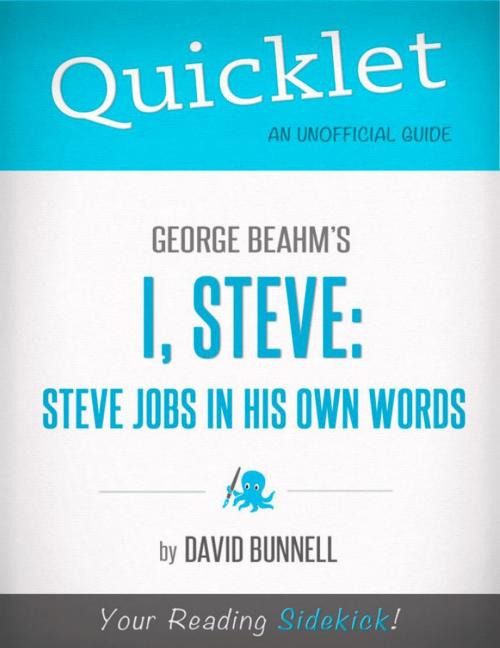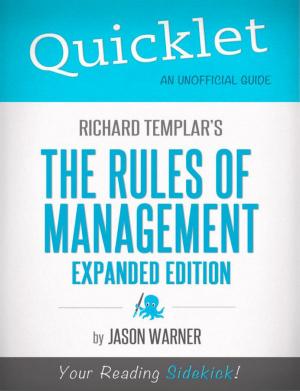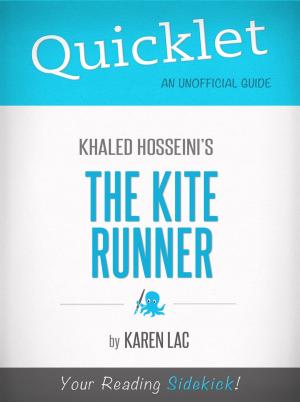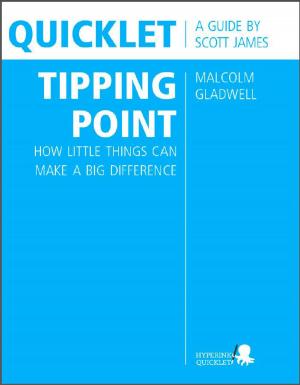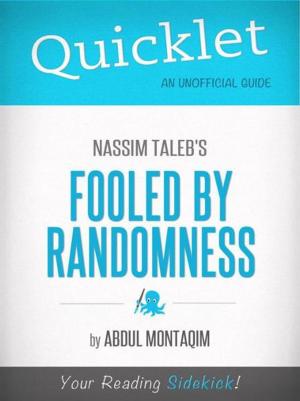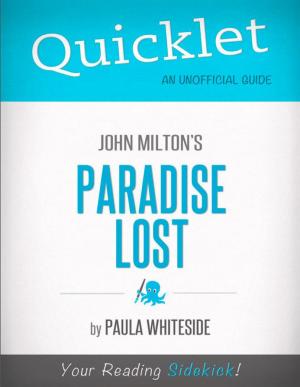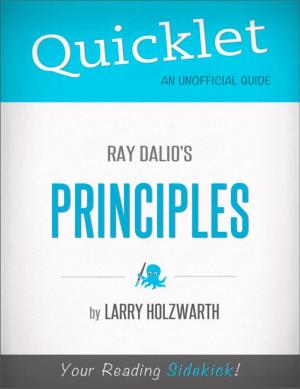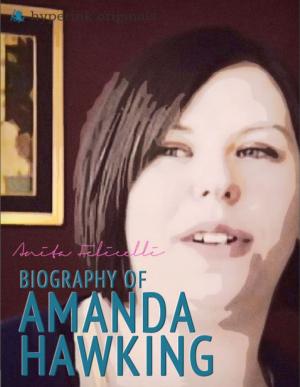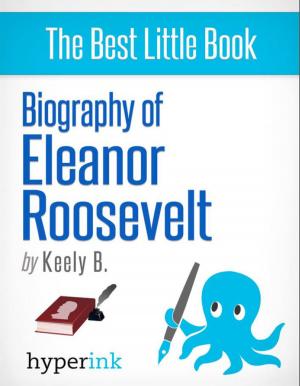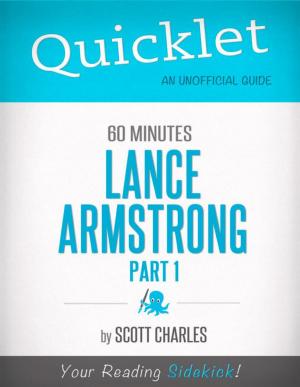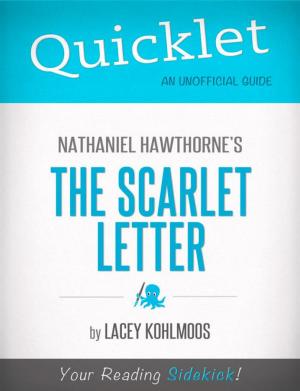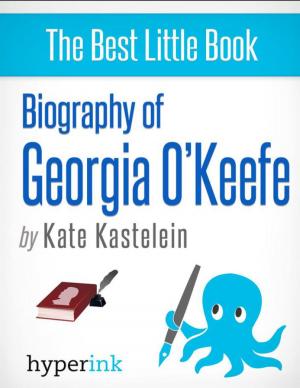Quicklet On George Beahm's I, Steve: Steve Jobs In His Own Words
Nonfiction, Reference & Language, Study Aids, Book Notes, Art & Architecture, General Art| Author: | David Bunnell | ISBN: | 9781484006702 |
| Publisher: | Hyperink | Publication: | February 12, 2012 |
| Imprint: | Hyperink | Language: | English |
| Author: | David Bunnell |
| ISBN: | 9781484006702 |
| Publisher: | Hyperink |
| Publication: | February 12, 2012 |
| Imprint: | Hyperink |
| Language: | English |
ABOUT THE BOOK
I, Steve: Steve Jobs in His Own Words is a 160-page book divided into two major sections: “Quotations” and “Milestones.”
The quotes are organized under 153 headings, most with a single quote, though some have two or more. They are presented in alphabetical order. Many of the quotes have to do with Apple Computer, product design and other business topics such as branding, hiring employees, motivating workers, etc. But almost as many reflect on Steve’s philosophy on life and death, as well as his insights on education, art, material wealth, success, and failure.
“Milestones” lists the significant events in Steve’s life, beginning with his birth in San Francisco and subsequent adoption in 1955 and ending with his death in 2011.
The book ends with the text Steve Job’s resignation letter as CEO of Apple and with a list of citations.
MEET THE AUTHOR
Entrepreneurial publisher and social media marketer, David Bunnell is the founder of several magazines in the personal computer industry (PC, PC World, Macworld, NewMedia, Upside), biotechnology (BioWorld) and health (ELDR Magazine) as well as websites and conferences.
He is the author of three technology books (EBay Phenomenon, CISCO Connection, Guide to Personal Computing) and two health books (Count Down Your Age, The Immortality Edge) as well as hundreds of magazine and online articles.
His interests include technology startups, social media marketing, longevity, healthy living, food and restaurants, oceanography, the salmon industry, basketball, politics of the NCAA, history of World War II, Native Americans, and exercise science.
Bunnell graduated from the University of Nebraska in 1969. He was a public school teacher for 4 years before he embarked on his media career.
EXCERPT FROM THE BOOK
Steve Jobs was one of the most visionary business leaders of all time. He revolutionized six industries, including personal computers, animated movies, music, phones, tablet computing, and digital publishing. But what made him so incredibly inspiring to me and to millions of his admirers was not just his business acumen. It was all the astonishing qualities he had not normally associated with business people.
Steve Jobs was an artist; he was passionate, volatile, opinionated, uniquely creative, mysterious, secretive, and even spiritual. The products he created not only changed the world, but they captivated our imaginations. They always had a clean, elegant look that reflected Steve’s great sense of design and they were always surprisingly intuitive, simple to understand and use. During a joint appearance with Steve at the 2007 G5 Conference in San Diego, Bill Gates famously said, “I’d give a lot to have Steve’s taste,” and I imagine most of us would give a lot as well.
As did many others, I admired his showmanship when he introduced something new and I wondered what he would come up with next. Now that he is gone, I wonder what great products we will never see.
The best way to understand Steve Jobs and discover what really made him tick is to read his own words. As editor George Beahm writes in the introduction to I, Steve: Steve Jobs in His Own Words:
Since 1976 Steve Jobs spoke his mind, to the delight of his advocates and the dismay of his detractors, in every possible venue: press releases, statements on Apple’s websites, public appearances to introduce new Apple products, and interviews to the print and electronic media.
Reading the profound words of Steve Jobs on the many topics he addressed is a very inspiring experience which I would recommend to anyone. And this book is a great collection.
Buy a copy to keep reading!
ABOUT THE BOOK
I, Steve: Steve Jobs in His Own Words is a 160-page book divided into two major sections: “Quotations” and “Milestones.”
The quotes are organized under 153 headings, most with a single quote, though some have two or more. They are presented in alphabetical order. Many of the quotes have to do with Apple Computer, product design and other business topics such as branding, hiring employees, motivating workers, etc. But almost as many reflect on Steve’s philosophy on life and death, as well as his insights on education, art, material wealth, success, and failure.
“Milestones” lists the significant events in Steve’s life, beginning with his birth in San Francisco and subsequent adoption in 1955 and ending with his death in 2011.
The book ends with the text Steve Job’s resignation letter as CEO of Apple and with a list of citations.
MEET THE AUTHOR
Entrepreneurial publisher and social media marketer, David Bunnell is the founder of several magazines in the personal computer industry (PC, PC World, Macworld, NewMedia, Upside), biotechnology (BioWorld) and health (ELDR Magazine) as well as websites and conferences.
He is the author of three technology books (EBay Phenomenon, CISCO Connection, Guide to Personal Computing) and two health books (Count Down Your Age, The Immortality Edge) as well as hundreds of magazine and online articles.
His interests include technology startups, social media marketing, longevity, healthy living, food and restaurants, oceanography, the salmon industry, basketball, politics of the NCAA, history of World War II, Native Americans, and exercise science.
Bunnell graduated from the University of Nebraska in 1969. He was a public school teacher for 4 years before he embarked on his media career.
EXCERPT FROM THE BOOK
Steve Jobs was one of the most visionary business leaders of all time. He revolutionized six industries, including personal computers, animated movies, music, phones, tablet computing, and digital publishing. But what made him so incredibly inspiring to me and to millions of his admirers was not just his business acumen. It was all the astonishing qualities he had not normally associated with business people.
Steve Jobs was an artist; he was passionate, volatile, opinionated, uniquely creative, mysterious, secretive, and even spiritual. The products he created not only changed the world, but they captivated our imaginations. They always had a clean, elegant look that reflected Steve’s great sense of design and they were always surprisingly intuitive, simple to understand and use. During a joint appearance with Steve at the 2007 G5 Conference in San Diego, Bill Gates famously said, “I’d give a lot to have Steve’s taste,” and I imagine most of us would give a lot as well.
As did many others, I admired his showmanship when he introduced something new and I wondered what he would come up with next. Now that he is gone, I wonder what great products we will never see.
The best way to understand Steve Jobs and discover what really made him tick is to read his own words. As editor George Beahm writes in the introduction to I, Steve: Steve Jobs in His Own Words:
Since 1976 Steve Jobs spoke his mind, to the delight of his advocates and the dismay of his detractors, in every possible venue: press releases, statements on Apple’s websites, public appearances to introduce new Apple products, and interviews to the print and electronic media.
Reading the profound words of Steve Jobs on the many topics he addressed is a very inspiring experience which I would recommend to anyone. And this book is a great collection.
Buy a copy to keep reading!
